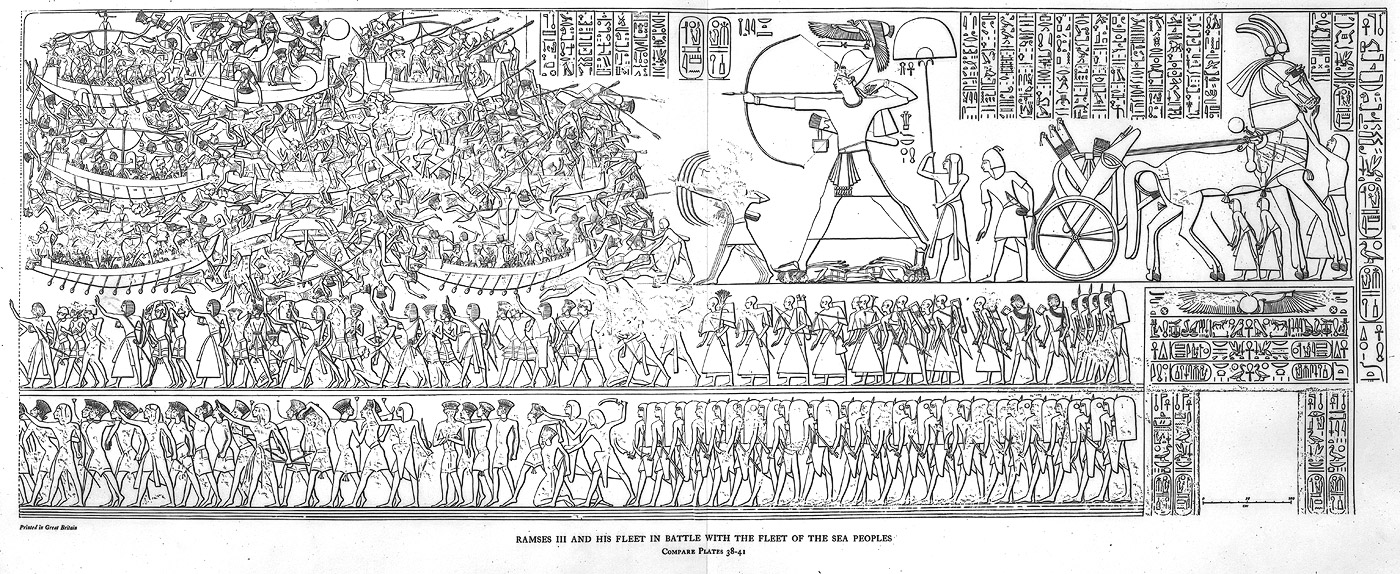Second Millennia BCE Civilizations
-
Urban civilizations develop away from the great river valleys
-
Increasing emphasis on trade, as urban centers move into agriculturally poorer areas
-
Increasing expansion of a bureaucratic-military elite
-
Inherently fragile
-
vulnerable to climate change
-
vulnerable to disruption of trade routes
-
extensive warfare and imperial expansion weaken and overextends civilizations
-
Mediterranean and Middle East
-
Hittites (1800-1210 BCE)
-
mixed farming and herding civilization based in Anatolia (modern Turkey)
-
depended on trade and conquest for missing resources
-
sacred king spoke to Sun God; oversaw large bureaucracy
-
Plague and military losses brings about decline
-
-
Minoans (2000 BCE-1500 BCE)
-
based on Crete, the largest of the Aegean islands
-
resource-poor Crete necessitated extensive trade
-
large place-complexes inhabited by a wealthy elite
-
high levels of disparity between rich and poor
-
brought down by volcanic destruction of Thera/Santorini c.1500 BCE
-
-
Mycenaean's (1500-1100 BCE)
-
Rise seems to coincide with destruction of Thera
-
Greek speakers; establish fortress cities on Greek mainland and on Crete
-
Warrior-kings oversaw extensive trade and constant warfare for resource
-
Undone by this constant warfare, earthquakes - and possibly the Sea People
-
-
Eastern Mediterranean and the Sea People
-
Ramses III defeats the Sea People in the Battle of the Delta (c. 1175 BCE), as depicted in his tomb

-
1200-1100 BCE see collapse of all urban civilization in Eastern Mediterranean
-
Egypt is the sole exception
-
Evidence of waves of attacks
-
Cretans move towns to inaccessible mountain tops
-
some documentation of waves of attackers in E. Mediterranean cities
-
Egypt records military victory over the "Sea People" c. 1190 BCE
-
-
Invasions and weakness of civilizations may have been caused by famine
-
evidence of famine - source of famine unclear
-
may have resulted from overpopulation of agricultural zones
-
-
Harappa and the Indus
-
Harappa civilization collapses by 1500 BCE
-
Traditionally attributed to the "Aryan Invasion"
-
Migrants from central Asia move into the Indus and Ganges regions c. 1500-500 BCE
-
stories of these people collected in the Rig Vedas c. 800 BCE
-
semi-mythical account of their history and gods
-
becomes founding text of Hinduism
-
-
No evidence of "conquest" - appears to be a migration in response to Harrapan collapse, not the cause of that collapse
-
Overpopulation and expanding deserts seem to be main causes - Saraswati river dries up
-
inability of rulers to control and distribute food may have brought about collapse
-
by 1000 BCE, all Harrapan site shave been abandoned
-
Decline of the Shang in China
-
Shang kings had depended on success in war and on ritual status
-
Both begin to break down c. 1200 BCE, accelerating after 1100 BCE
-
defeats in battle
-
ritual sacred kingships develop in surrounding territories (not the only claimant to this status anymore)
-
Shang king controls less and less territory
-
overthrown by Zhou c. 1045 BCE
-
Common Themes - Reasons for Decline
-
By 1100-1000 BCE, several major civilization have collapsed
-
Others severely weakened or replaced
-
Causes
-
intensive agriculture led to rising populations
-
rising populations required conquest and trade for needed resources
-
any disruption in agriculture, trade, or warfare could be disastrous
-
crop failures or loss of land in battle leads to famine, migration
-
rivals imitate success
-
opens up possibility of invasion
-
rivals, if successful, fall prey to the same problems
-
-